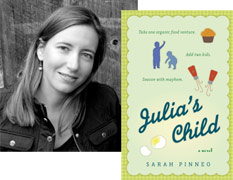The profiles of several agents were added and updated this week. Please make sure you double-check every agent's website or Publisher's Marketplace page before querying.
Ready to write your own success story?
Remember--you'll reach success when you find the agent who is perfect for your work. Be sure to read each agent's profile carefully and visit other links such as company websites and blogs. Follow them on social media sites and get a feeling for what they really want. The better you know the agent, the better you will know if they are the right representative for your work. Blindly querying agents without regard for their guidelines or repped genres only delay the process--not only for you but for other writers.

Using QueryTracker.net will help you become a well-informed querying writer. Use the resources to your advantage and seek the fastest, straightest path to finding your ideal agent today.
This Week In Publishing
Time again for IndieReCon! The annual event was held this week, featuring webcasts, chats, and blog posts from Indie favorites JA Konranth, Susan Kaye Quinn, and Lara Perkins from Andrea Brown Literary Agency. Notable topics included promo tips, building resource lists, using KOBO, building readerships, hybrid authors…I could go on but you can just visit the link and read through for yourself. The site, once again, is bookmark worthy and is already pinned to my Start screen.
Although this article on becoming a best-seller is geared to the self-publishing author, I think there are several good points here for any author, including those who wish to submit their work to traditional publishers. Many of the tips in this article build your brand as an author and help to improve the quality of your manuscript, both of which will increase your chances at a traditional publishing deal. (More on building your author platform from Haiku Deck here)
I’m a huge fan of writing contests but this article regarding literary awards garnering more negative reviews provided serious food for thought. What it comes down to, however, is the phenomena of fame building a more diverse audience—not necessarily a target audience, but a larger percentage of readers drawn to the book only because of the award attached.
Good news for writer’s who want to produce serial fiction! Are readers craving the Netflix Binge Effect* when it comes to books? (*A time-suck phenomenon during which a viewer decides to watch one episode of a TV series on Netflix and shuts the TV off after 14 consecutive hours of viewing because she HAD to finish the series, i.e. my typical Wednesday.)
Have a great weekend, everyone!
Ash Krafton is a speculative fiction writer who, despite having a Time Turner under her couch and three different sonic screwdrivers in her purse, still encounters difficulty with time management. Visit Ash at www.ashkrafton.com for news on her urban fantasy series The Books of the Demimonde (Pink Narcissus Press) or stop by the Demimonde Blog at www.ash-krafton.blogspot.com . WOLF’S BANE (Demimonde #3) is forthcoming mid-2014. Yay for serial fiction!












